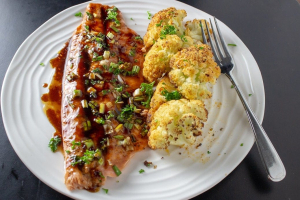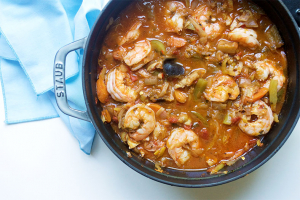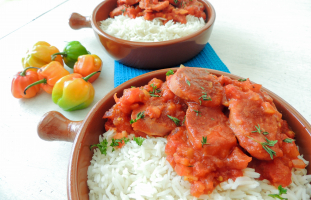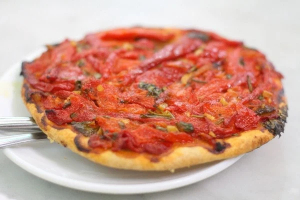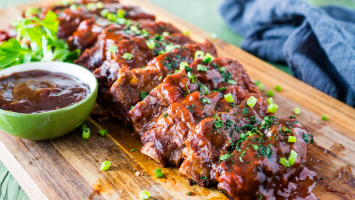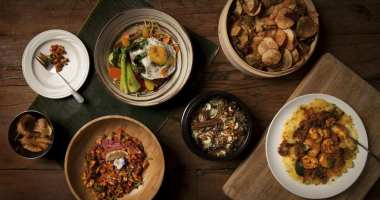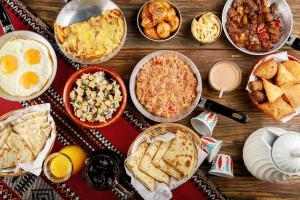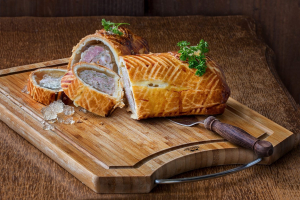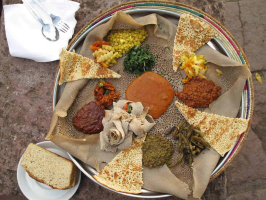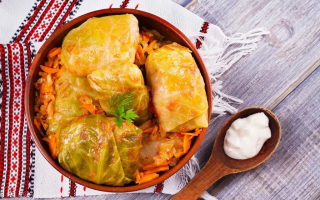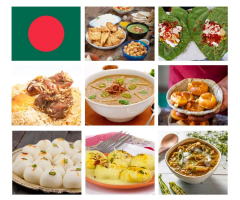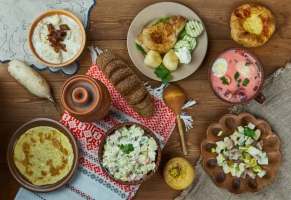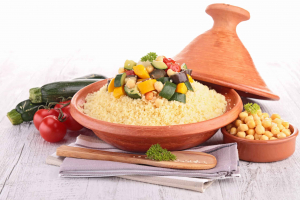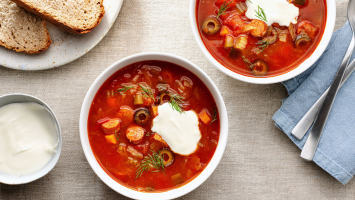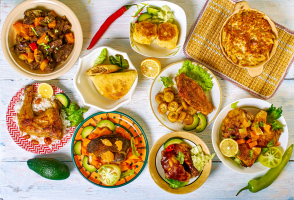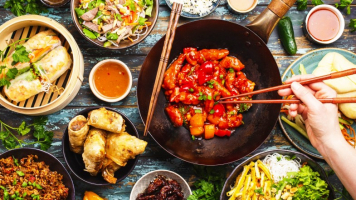Top 6 Best Foods in Botswana - With Recipes
Botswana is a landlocked country in Southern Africa with the Kgalagadi desert covering 70% of its area; it is surrounded by Namibia, South Africa, Zambia, and ... read more...Zimbabwe. The San, a sizable minority, are considered the first residents of Southern Africa and continue to maintain a hunter-gatherer lifestyle. Batswana survive on a diet consisting mostly of meat, starches and grains, and indigenous plants in the hot, desert climate.Let's find out the culinary tour of Botswana!
-
Mogatla, which means "oxtail" in Setswana, is a stew popular in Botswana. Because of its significant roots in Botswana's culture, it may be considered a national comfort dish. The majority of Batswana make a living by raising and selling cattle, and they keep the less expensive parts, such as the tail, for special occasions. It takes a while for the meat to become soft, but it's well worth the wait. This is a well-known oxtail stew. Add in the matlebekwane dumplings and you've got yourself a great supper.
Ingredients:
1 package oxtail,1 white onion chopped,2 large tomatoes sliced,2 tablespoons tomato paste,1 beef stock cube,1 clove garlic minced,2 tablespoons cooking oil divided, Salt and pepper to taste
Instructions:
- Brown the oxtail in 1 tablespoon of oil in a stockpot, then set aside the oxtail
- Add in the remaining oil and saute the onions until soft
- Add in the tomatoes, garlic, and paste and mix together
- Add back in the oxtail and the beef stock cube and cover with water
- Cover and simmer until the meat is tender, this can take a couple of hours.
- Add salt and pepper to taste.
- If making the dumplings, add them in the boiling stew about 30 minutes before the end of the cooking time.
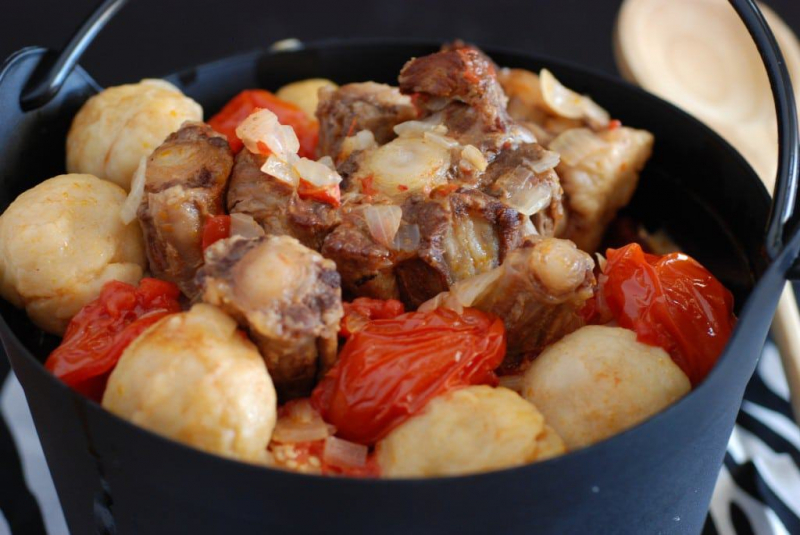
internationalcuisine.com 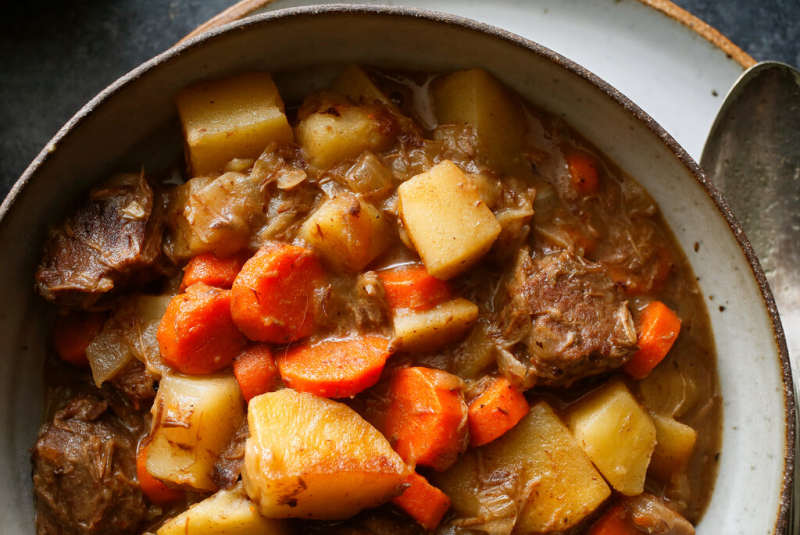
nytimes.com -
Botswana's Beef in a Slow Cooker (Seswaa) is incredibly tasty! Put it in the crock cooker for 4.5 hours and you'll have a tasty stew on your hands. Meat, particularly beef, is an important part of Tswana culture; it is offered in a number of ways and is present at all types of celebrations. Seswaa, or slow-cooked beef, is a popular way of serving meat all throughout the country. The shoulder, rib, rump, and neck are the most common cuts. Because the toughness of the various portions of the cow varies, they are frequently cooked separately.
Ingredients:
1 kg slow cooking beef (beef chuck on the bone),1 whole onion (optional),3 bay leaves,Salt to taste,Black pepper (optional),Water (enough to just cover the meat)
Instructions:
- Preheat the oven to 160 degrees Celsius. Cut the meat into large chunks then brown in a dish suitable for slow cooking in the oven such as a cast-iron casserole dish.
- Add the whole peeled onion, salt, cracked black pepper, water and bay leave. Bring to the boil then cover and place into the oven for 4 hours.
- After 4 hours, remove from the oven and place onto the stove burner in order to cook off most of the remaining liquid.
- Use a wooden spoon to pound or mash up the meat, the meat should fall apart quite easily. and will appear shredded. You may brown the meat further if desired.
- Check the seasoning then serve with polenta or the more traditional thick cornmeal porridge known as pap or sadza, and a side of green vegetables.
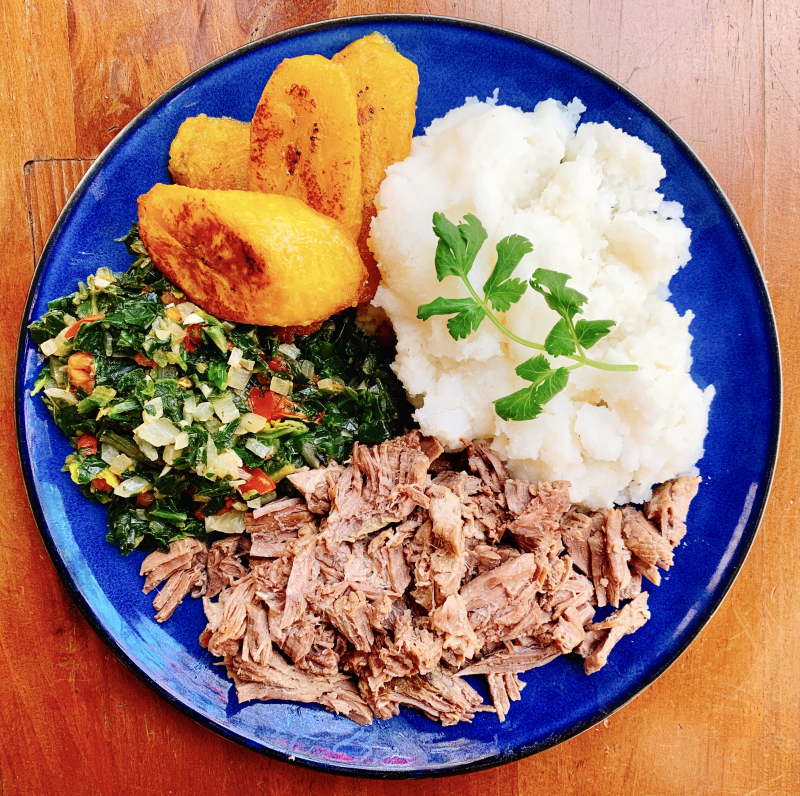
aroundtheworldin80cuisines.com 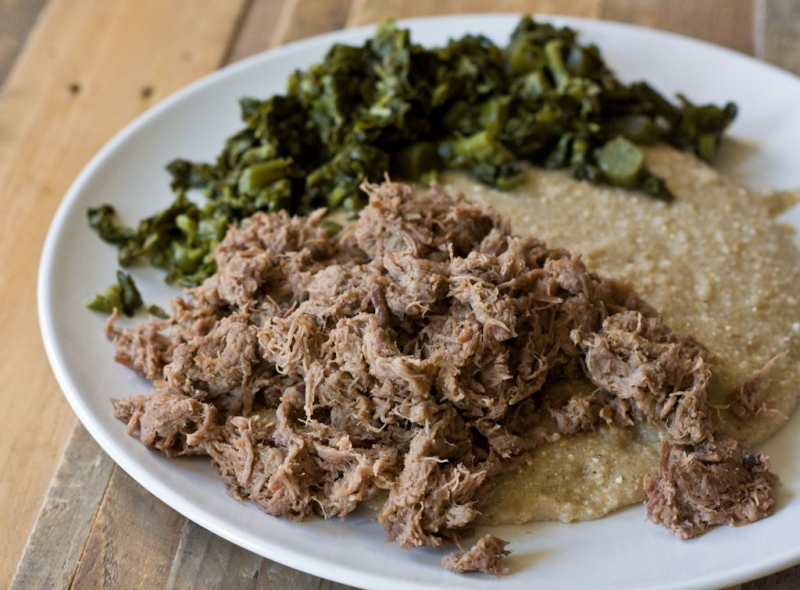
pinterest.com -
Phaphata is a flattened dumpling that is prepared without the use of water. The dough's composition and preparation procedure are nearly same, but the phaphata's shape is flat and circular, and it is cooked dry in a frying pan. For breakfast or as a snack, phaphatha is commonly taken. It's frequently served with a protein stew because it's so basic. At 10 a.m, nothing beats a hot cup of tea or coffee and a fresh warm phaphatha packed with chicken liver or chicken stew. Despite the fact that it is simply a snack, it is rather full, and I can only eat two stuffed phaphatas in one sitting.
Ingredients:
2 cups all-purpose flour,2 tsp baking powder,1/2 tsp salt,1 tsp white sugar,1/2 cup milk (dairy or non-dairy),1 tbsp butter
Instructions:
- In a large bowl, whisk together flour, baking powder, salt, and sugar.
- Slowly add milk to the flour mixture and stir to combine. Knead for 3 minutes until a soft, smooth dough has formed.
- Cover dough and allow to rest for 15 minutes.
- Dust bench with flour and roll out dough to half a centimeter thick.
- Use a round cookie cutter or bowl with sharp edges to cut rounds, around 8cm in diameter.
- Heat a flat pan over high heat. Add one tablespoon of butter. Once melted, reduce heat to medium.
- Place as many dough rounds as you can fit on the pan and cook for 2 minutes on each side or until they go slightly brown and puffy.
- Leave for a few minutes before slicing in half and serving with your favorite toppings!
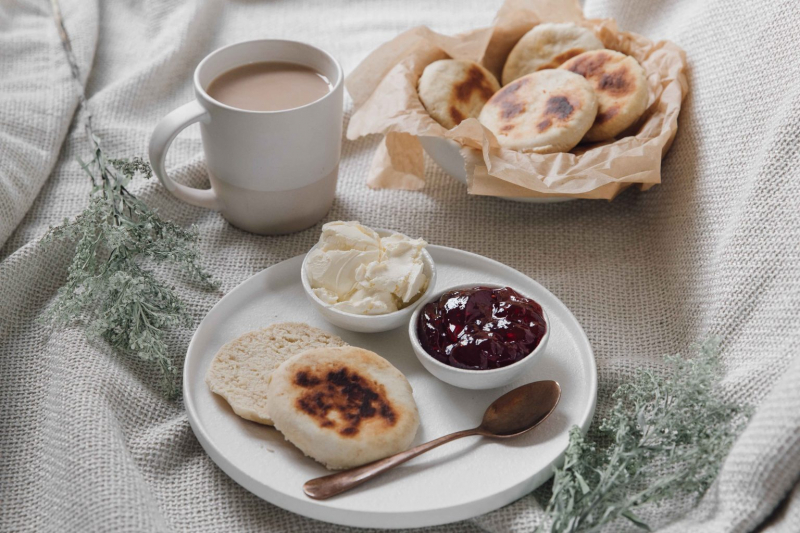
gourmetvegetarians.com 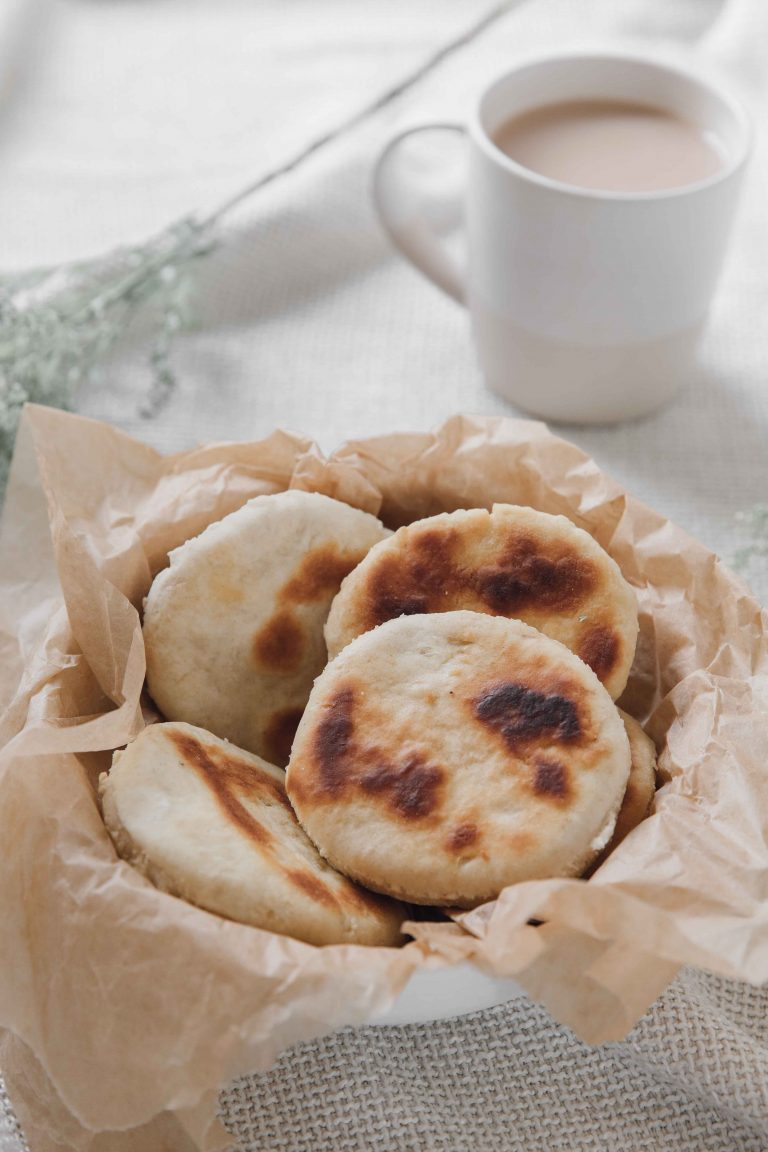
gourmetvegetarians.com -
Most Southern African countries have a traditional breakfast of bread and tea, which is generally alternated with sorghum soft porridge. Mapakiwa, a mix of a scone and a bun with the texture of a brioche roll, is another take on a British delight. They are coated with butter after baking to give them a tasty gloss. Mapakiwa, a full-flavored teatime delicacy prepared from wheat, butter, and eggs, is served with a hearty portion of jam and additional butter! You can add raisins or apple chunks for a unique twist.
Ingredients:
5 ½ cups bread flour,5 Tbsps sugar,2 tsp salt,1 ½ Tbsps instant yeast,3 Tbsps cooking oil,2 cups warm water
Instructions:- Combine flour, sugar, salt, and yeast in a large bowl. Stir to thoroughly combine.
- Pour the cooking oil into the water and then pour the wet ingredients into the bowl with the dry ingredients.
- Once the flour is moistened and the wet ingredients are fully incorporated switch to your hands and knead the dough in the bowl for 8 minutes.
- Turn the dough out onto a lightly floured surface and knead with your hands for 8 minutes.
- Shape the dough into a ball and place it in a lightly greased bowl, cover with a towel and let it rise for 25 minutes or until it doubles in size.
- Turn the dough back out onto a clean surface and knockback by kneading for a few minutes.
- Place the balls in a lightly greased baking pan (11 balls per pan) and cover with a cloth and allow to rise again for 25 minutes.
- Bake at 350℉ for 25 minutes or until golden brown.
- Once baked, remove from the oven and brush the tops with melted butter.
- Allow to cool some in the tins before removing them but keep the Mapakiwa connected till time to eat, enjoy with coffee or tea!
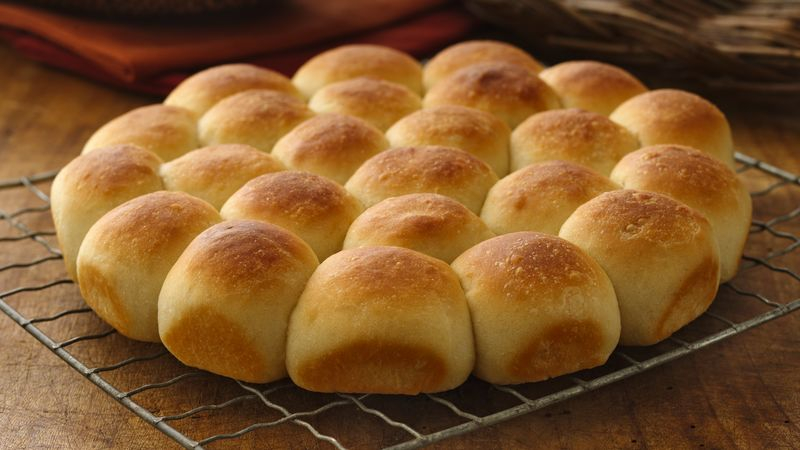
bettycrocker.com 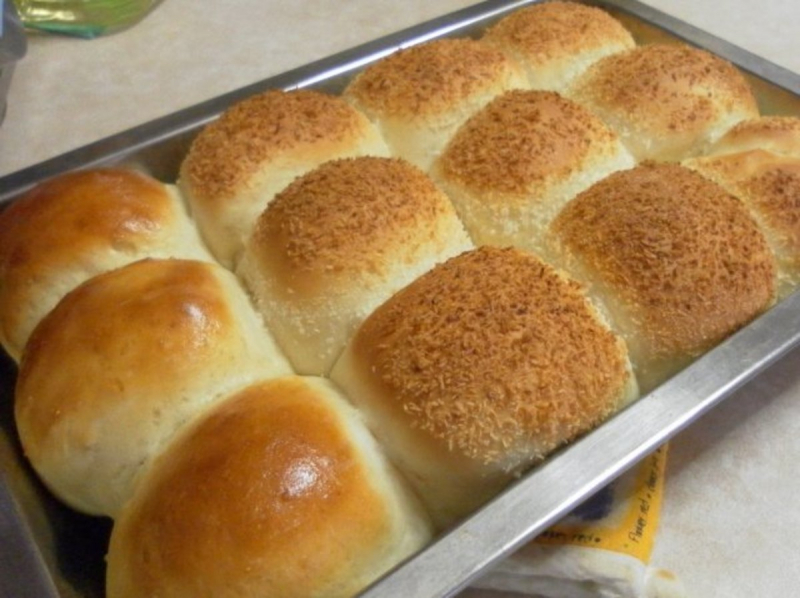
delishably.com -
Bogobe is produced from millet or sorghum powder that is boiled in boiling water. Bogobe jwa lerotse is a sorghum variety prepared by inserting a lerotse melon into the mix.Its main ingredient is the lerotse melon, a less sweet kind of watermelon native to Botswana that tastes more like cucumber when eaten fresh. The recipe also includes sorghum meal and sour milk, in addition to the chopped and cooked lerotse. A lerotse melon tastes like a cucumber when eaten fresh, and it provides the bogobe its famed light-orange skin, which is a wedding crowd favourite. Another variation is bogobe jwa legala, which is cooked in milk for a creamier texture. Both are delicious when served with seswaa and local vegetables.
Ingredients:
½ Lerotse,1kg Bopi jwa mabele (sorghum),1 cup Madila,Mayonnaise (optional),water
Instructions:- Slice lerotse and peel it. Remove the seeds
- Cut lerotse into pieces to fit the size of the pot.
- Boil some water (about 1/4 of the pot). When boiling, add enough lerotse to fill the pot and cover. When the volume reduces, add more lerotse, and continue until all the lerotse pieces have been added.
- Cook gently for another 30 minutes, until the lerotse can be whisked with a traditional wooden whisk (lehetho). Slowly stir in the bopi jwa mabele, a little at a time, while you whisk until all the lumps are broken down. At this point the mixture should be of a creamy consistency – the consistency of typical soft porridge.
- Cover the pot and allow simmering.
- Add bogobe while stirring with a cooking stick (liso le le apayang) to avoid lumps.
- Continue adding bogobe and stirring to a desired consistency and allow to cook for about 15 min and then add the madila, gently folding it into the boiling mixture. Then add 3tbs of mayonnaise and continue to fold in. Reduce the heat and simmer for another 5 min.
- Leave it for another 30 minutes
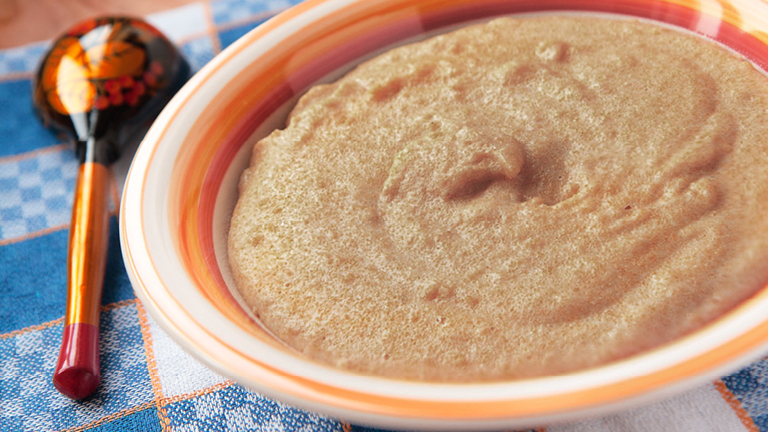
spar.co.bw 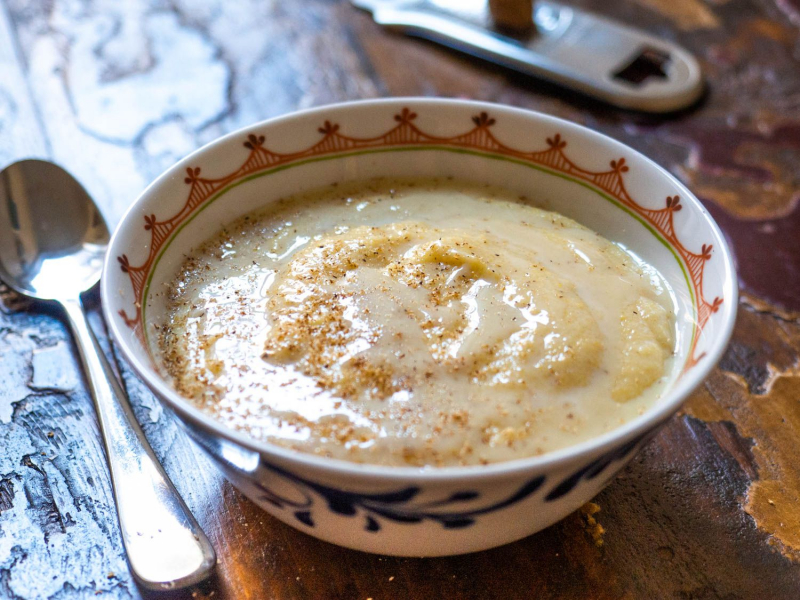
seriouseats.com -
Menoto means "chicken feet" in Setswana. As a ubiquitous street meal, many Batswana might be found munching on this nasty nibble during lunchtime. After being seasoned and flavored, they are frequently roasted over a grill. Many folks prefer them served hot. To make the most of their gelatin, Menoto can also be boiled down into a stew. This dish will be better when you put it in the fridge. Due to their lack of meat, they are served in enormous servings at restaurants. They're also available at butcher shops and grocery stores across the country.
Ingredients:
32 chicken feet (about 2 pounds),Kosher salt,1/2 cup sake,1/3 cup water,6 large thin slices of fresh ginger,1/3 cup soy sauce,1/4 cup sugar (Chinese yellow rock or granulated sugar),2 dried hot chiles, crushed,2 tablespoons oyster sauce,2 tablespoons hoisin sauce,2 pods star anise,1 stick cinnamon,1 cup sliced scallions (1-inch pieces),2 tablespoons minced scallions, garnish,1 tablespoon sesame seeds, toasted, garnishInstructions:
- Gather the ingredients.
- Rub the cleaned chicken feet with kosher salt and let stand for 10 minutes.
- Rinse the salted chicken feet under cold water.
- Boil another pot of water, salt it generously, and add the chicken feet; blanch for 5 minutes and drain well.
- Place a 14-inch sauté pan over high heat. Add the chicken and dry-sear until lightly brown.
- Add the remaining ingredients and bring to a simmer. Cook, covered, for about 10 minutes.
- Uncover and simmer until the sauce has become thick and cooked down, tossing frequently to coat the feet as the sauce reduces.
- Garnish with minced scallions and toasted sesame seeds. Serve and enjoy.
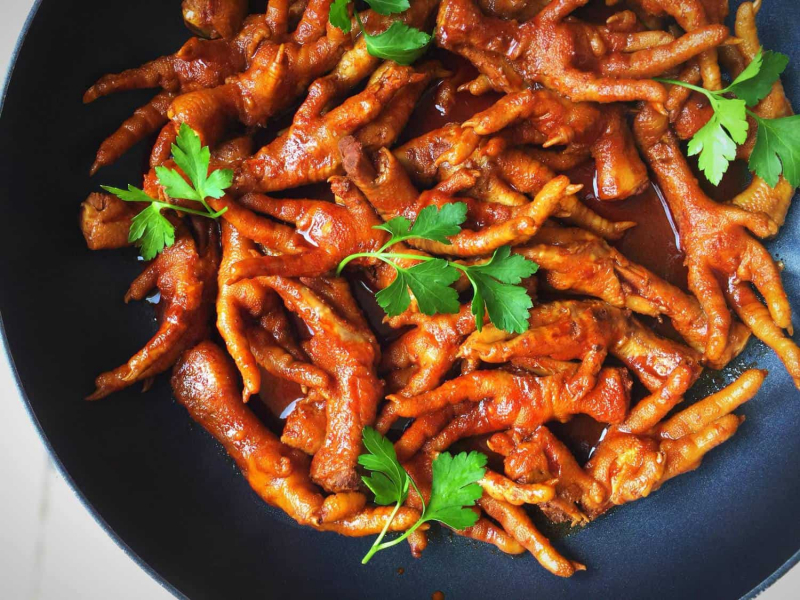
foodformzansi.com 
allasiarecipes.com








